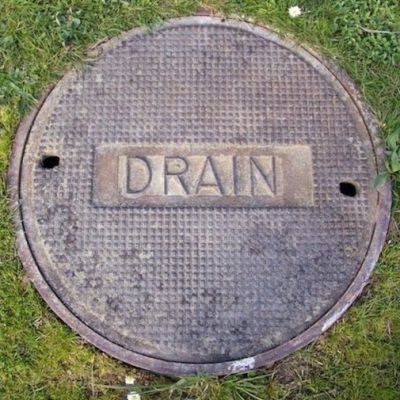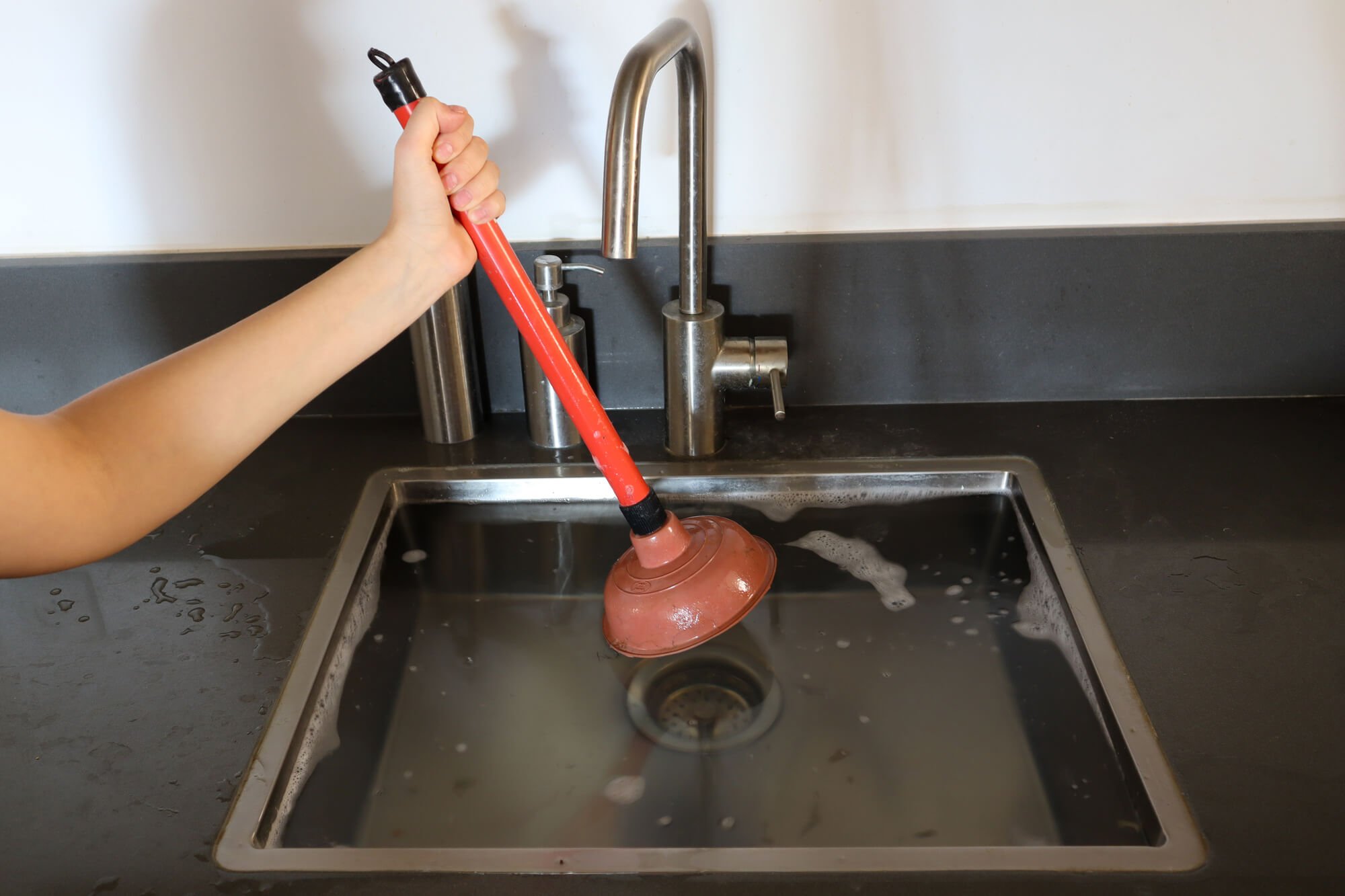We've noticed this great article on Tips for Dealing with Clogged Drains and Sewer Lines below on the web and accepted it made good sense to relate it with you on my blog.

Intro
Taking care of a blocked drain can be a discouraging experience, interfering with day-to-day activities and potentially triggering damages to your residential or commercial property. However, before connecting to plumbing experts, there are actions you can require to address the problem on your own. In this guide, we'll explore DIY services and safety nets to deal with a blocked drain successfully.
Determining the Issue
The very first step in attending to a blocked drainpipe is identifying the signs. Slow water drainage, gurgling sounds, foul odors originating from drains pipes, or water support up prevail indications of an obstructed drain. Identifying these signs early can help prevent even more complications.
Typical Sources Of Blocked Drains
Comprehending the aspects that add to drain blockages is essential for reliable resolution. Typical culprits consist of hair, soap residue, oil, food debris, and foreign objects like hygienic items or paper towels. Tree roots invading underground pipelines can also cause significant blockages.
DIY Solutions
For small obstructions, a number of DIY options can be reliable. Putting boiling water down the drain can help liquify oil and particles. Baking soda and vinegar or a mix of salt and baking soft drink can serve as natural cleaners. Making use of a plunger or plumbing serpent to remove obstructions is one more option.
Tools and Equipment
Having the right tools on hand can make DIY drainpipe cleansing a lot more efficient. A bettor is a flexible device for getting rid of obstructions in sinks, toilets, and showers. A pipes serpent or auger can reach much deeper blockages, while drainpipe cleansing chemicals can be used very carefully for persistent blockages.
Safety nets
To avoid future obstructions, adopting safety nets is essential. Install drain guards or strainers to capture hair and debris before they go into the pipes. On a regular basis flush drains with warm water to dissolve oil build-up, and prevent disposing of grease or solid waste down the drain.
When to Call a Specialist
While DIY services can fix small obstructions, particular signs suggest the need for specialist assistance. Relentless obstructions, foul odors regardless of cleansing initiatives, or several drains pipes supporting all at once are red flags that necessitate professional treatment.
Choosing the Right Plumbing Solution
When choosing a plumbing service, think about variables such as experience, licensing, and consumer evaluations. Select a reputable plumber with a record of top quality handiwork and transparent rates methods.
Expense Factors to consider
The expense of expert drain cleaning services can differ depending on the intensity of the blockage and the plumbing professional's rates. Demand quotes from several carriers and ask about any surcharges to guarantee openness and avoid shocks.
Security Measures
When trying DIY drainpipe cleaning, prioritize security. Put on protective handwear covers and eyeglasses to avoid contact with damaging chemicals or microorganisms. Never mix different drainpipe cleansing items, as this can produce harmful fumes.
Situation Researches
Real-life instances show the efficiency of do it yourself solutions and the relevance of timely expert intervention in fixing drain obstructions.
Conclusion
By following the suggestions detailed in this overview, you can successfully deal with blocked drains and avoid future plumbing concerns. Whether selecting do it yourself remedies or looking for expert assistance, timely activity is key to preserving a healthy and balanced plumbing system and protecting the stability of your home.
9 Ways You Can Clear a Blocked Drain
Blocked Drains from Hair
We’ve seen it all before, a build-up of hair that’s leads to a clogged drain. Most times it’s a moderately easy task to simply ‘remove the hair’, but if it’s not cleared up straight away – it can cause a lot of issues down the line.
Hair falling off the body in the shower or while getting ready over the sink and in the bathroom is one of the most common causes of blocked sinks and drains. But whilst it’s a common problem for many homeowners, there are ways you can fix your drain and put a long-term solution in place.
How to Fix Blocked Drains from Hair?
What to do: Small amounts of hair can be removed by pulling it out with gloved hands to avoid it getting worse. Drain cleaning devices such as drain spiders can also be purchased to help remove the hair from the drain. However, it’s important to be careful as some devices and cheap hair removal chemicals can make the problem worse.
It’s important to remove the hair before it gets clogged into the entry of the drain pipes. If you’re unable to reach the hair or the devices aren’t working as intended, it’s time to speak to a blocked drain specialist.
Blocked Drains from Plants and Dirt
Natural debris like trees, shrubs, dirt and leaves can be an issue for water drains, especially after spring and autumn. Your regular garden and drain maintenance that keeps the outdoor area looking great is also essential to the productivity of your water drains and pipes.
Leaves aren’t the only culprit, however – tree roots are notorious for growing underneath in search of water and as a result, will usually head straight to your drains.
How to Fix Blocked Drains from Plants and Dirt?
What to do: To prevent plants, leaves and dirt from blocking the drains, keep the outdoor area clear of fallen leaves and debris. If this mess is left long enough, it will cause your drains to become severely blocked.
Keep your trees well-watered so they are less drawn to the drains as a source of moisture and stay away from clogging plants where possible; like willow trees, oak trees, magnolias, boxwood shrubs, palm trees and gum trees.
While ensuring your yard is free from leaves and dirt is a great way to prevent build-up, sometimes the real issues lay under the surface. Tree roots can crack your drain pipes beneath your home – causing severe blockages and leaks. Specialist drain cleaning equipment can be used to clear the blockage and pipe relining technology can provide a long-term structural repair.
Blocked Drains from Grease Build-up
Like hair in the bathroom, grease and fat will build-up in the kitchen sink over time. These fatty substances are a very common cause of blocked drains and pipes and can be a nuisance to clear out.
Any grease waste or fatty substance that is washed down the sink will stick to the inside of the pipes and eventually build up to a point no liquid can pass through. It’s important to be aware that this grease doesn’t leave the pipes as easily as you would expect.
How to Fix Blocked Drains from Grease Build-up?
What to do: Avoid washing these fatty ingredients down the affected drain as much as possible. Grease that’s washed down the drain will cool and harden in the pipes.
A smart way to prevent this build-up of grease is to start collecting all glass jars that you purchase at the supermarket. Then, instead of pouring this oil or kitchen grease down the drain, put it in the small glass or plastic containers to discard with your garbage.
Blocked Drains from Toiletries
As more people get into the habit of disposing of toiletries down the drain, bigger problems are being caused in our pipes and sewers. Nappies and baby wipes are the two common issue items known to block drains after being flushed down the toilet.
Such items become immersed with water, they absorb the moisture and enlarge, quickly blocking access to water drains and pipes.
How to Fix Blocked Drains from Toiletries?
What to do: This way of disposing of toiletries is dreadful for the environment and everyone should be encouraged to dispose of toiletries the right way. In the home, these items should be taken out with your garbage, just as people should make use of the designated bins when using public changing rooms and toilets.
Blocked Drains from Heavy Rain and Storms
Throughout the wet season, drains will experience floods of water because of heavy rainfall. Because drains aren’t really designed to take the full impact of this weather, water build-up can be common in many Perth households.
When there is an overflow of rainwater in gutters and downpipes, there’s a good chance there’s a blocked drain that needs to be cleared out.
How to Fix Blocked Drains from Heavy Rain and Storms?
What to do: Ensure gutters and outdoor drains are cleaned during the wet season to prevent a build-up of leaves which will cause a bigger blockage. Problems caused by heavy rain and storms will usually require a plumber to help unclog and assist with the wastewater removal. If this is the case, contact them as soon as possible to prevent further build-up and potential flooding in your home and yard.

I am just very occupied with What I learned from trying to deal with a clogged drain and I am hoping you appreciated the piece. Sharing is caring. Helping people is fun. Thanks a bunch for being here. Come back soon.
Website